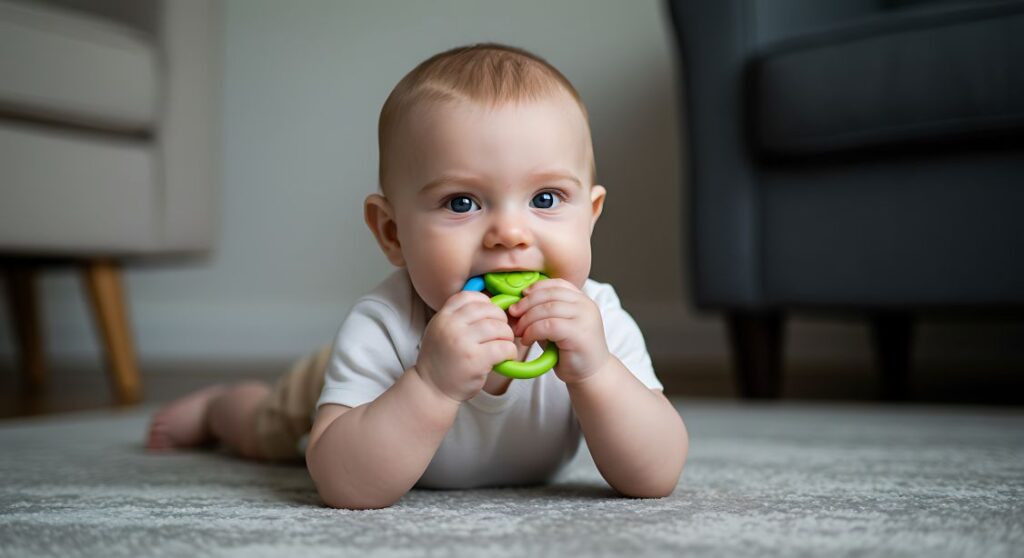
Teething is one of those necessary but painful parts of growing up. As a parent, it can be difficult to watch your baby suffer and not be able to do anything about it, but thankfully, products like teething rings were invented to help ease this discomfort and keep your little one calm. So, which kind should you choose? Here’s what you need to know about teething rings to help keep your baby’s smile safe while providing relief.
How to Pick the Right Teething Ring
Teething rings aren’t exactly a new invention. In fact, they were first introduced in the late 1700s, when wealthy parents gave their babies rings made of silver or gold. As time went on, softer versions were developed from materials like plastic, which were ironically much more effective and affordable.
Today, there’s no shortage of materials available for these products, including hard and soft plastics, silicone, bamboo, rubber, and wood. Thankfully, all of these are considered safe, but health professionals recommend avoiding any rings that are filled with fluid or water, as these can often tear apart during use and can be difficult to clean.
Best Practices for Teething Ring Use
Teething rings are a great way to soothe oral discomfort caused by baby’s growing teeth. Here are a few best practices to ensure safe use:
- You can keep your child’s teething ring cool for added relief, but do not freeze them, as this can injure their gums.
- Follow the cleaning instructions on the packaging, as different rings will have different recommendations.
- Never allow your baby to share their teething ring or pacifier with other children or pets.
- If your child’s teething ring becomes damaged, throw it away. Never use any teethers with loose parts or accessories.
- Never tie or pin a teething ring around your child’s neck or to their clothing.
- Never use amber teething necklaces, as these are both a strangulation and a choking hazard.
Remember, teething rings are a safe, effective way to soothe gums and ease the discomfort associated with your baby’s emerging teeth. If you would like to try a teething ring for your child, be sure to follow the above guidelines, and don’t forget to schedule baby’s first dental appointment once their first tooth emerges!
About Dr. Thorburn
Dr. Meghan Thorburn loves getting to work with children of all ages every day- even babies. If your little one has begun exhibiting the signs of teething, now is the perfect time to schedule their first dental appointment. Though they may not yet be sporting a full set of pearly whites, early dental visits can help make your baby comfortable with oral health care as well as allow Dr. Thorburn the opportunity to ensure that their smile is growing correctly. To schedule a visit at Trinity Pediatric Dentistry, please visit our website or call us today at 682-327-1133.
